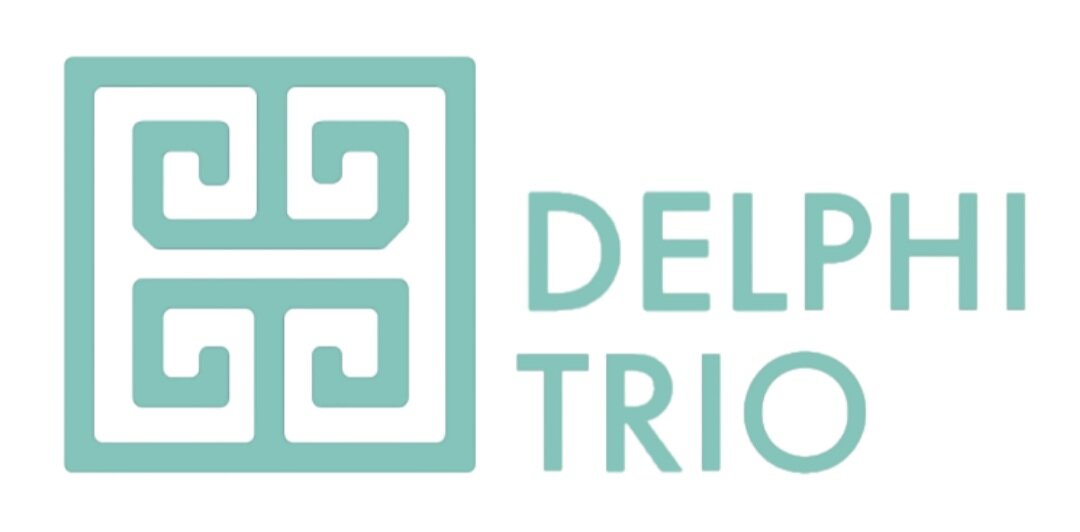CURRENT Programs
All programs can be presented in virtual or live format.
* denotes living composer.
THE HUMAN CONNECTION
Aram Khachaturian (1903-1978) – Berceuse
Germaine Tailleferre (1892-1983) – Piano Trio
Reena Esmail* – Saans (Breath)
Pyotr Ilyich Tchaikovsky (1840-1893) – Piano Trio in A minor, Op. 50
Music connects us in so many ways - to home, to each other, to our communities. In this program, three composers draw us briefly into their captivating worlds before we enter the epic journey of Pyotr Ilyich Tchaikovsky’s Piano Trio. Aram Khachaturian’s Berceuse rocks us in a lullaby that invokes melodies from the composer’s Armenian homeland while embracing the musical traditions of his adopted country, Russia; Germaine Tailleferre’s Piano Trio grabs us with soaring melodies and imaginative colors, reflecting her life in the 1917 French society of musical salons; written as a wedding present for her close friend, Reena Esmail’s romantic Saans (Breath) melds elements of North Indian classical music with the rich sonorities of the piano trio.
Finally, inspired by his own personal relationships - a dear friend’s death and the encouragement of an enigmatic patron upon whom he was so dependent - Tchaikovsky’s monumental Piano Trio connects us with our own humanity as only music can do.
Out of the Fire
Robertsbridge Codex (c. 1360) – Estampie
Patrick Castillo* – ephemera (Delphi commission)
Joseph Haydn (1732-1809) – Piano Trio in E Major Trio, Hob. XV:28
Ludwig van Beethoven (1770-1827) – Piano Trio in B-flat Major, Op.97, "Archduke"
As we emerge from a global pandemic, we find ourselves in a liminal time, between things. This program explores music’s power to make sense of change while also embodying it. We begin with the earliest surviving piece written for keyboard—an estampie from the Robertsbridge Codex. The medieval tones bring us straight into brilliant composer Patrick Castillo’s ephemera, commissioned for Delphi during the height of the COVID-19 pandemic and 2020 California wildfires. After establishing these two opposite ends of musical history, we discover a buoyant, exploratory work from Joseph Haydn, the 18th-century innovator who turned the piano trio into a substantial genre.
Finally, Beethoven’s “Archduke” Trio brings us into a new musical era, much as it ushered in a new period of life for Beethoven after the loss of his hearing—it was the final piece that he performed in public. In his break-through exploration of the piano trio genre and the beginnings of his later style, Beethoven takes us through a range of states from warm nobility to slapstick humor, existential struggle to eternal peace, ultimately ending in a joyous celebration of life.
The Biggest Losers
Johann Sebastian Bach (1685-1750) – Trio Sonata in E minor, BWV 528
Rebecca Clarke (1886-1979) – Piano Trio
Maurice Ravel (1875-1937) – Piano Trio in A minor
Who wins competitions and why? How do composers’ reputations change over time? So many of the composers we think of today as wildly successful faced tremendous failure during their lifetimes. J.S. Bach was rejected from multiple positions and struggled to free himself from smothering job contracts, in one case resulting in his imprisonment. At the time of his death, his music was considered old-fashioned. Ravel entered the prestigious Prix de Rome competition over five consecutive years, but never won. His final loss resulted in a public scandal and investigation. British-born composer Rebecca Clarke contended with misogyny and competition losses, yet managed to achieve significant recognition at the height of her career, becoming relatively unknown only later in life. She is just now taking her rightful place among history’s great composers.
This program begins with an example of the earliest “piano trio”- the Trio Sonata in E minor, originally written for organ, by J.S. Bach. Clarke’s deeply moving 1921 trio and Ravel’s thrilling 1914 trio are inspired by an earlier age, but reflect the tumult, dreams, and hopes of the early 20th century. Today these three winning works bely the struggles these composers faced in their careers.
Nevertheless, She Persisted
(alternate title: Music, She Wrote)
Lili Boulanger (1893-1918) – D’un matin de printemps; D’un soir triste
Gabriela Lena Frank* – Four Folk Songs
Fanny Hensel (née Mendelssohn) (1805-1847) - Piano Trio in D minor, Op. 17
Clara Schumann (1819-1896) - Piano Trio in G minor, Op. 17
For centuries, women composers faced not only a remarkable lack of societal and personal support, but outright discouragement; even women who were raised with a high level of musical education were often forbidden from continuing to publish their works once grown and married. This program showcases some revelatory music of two of the most well-known women composers of the Romantic era, Fanny Hensel (née Mendelssohn) and Clara Schumann who persevered and even flourished against all odds. The expressive depth of Lili Boulanger and the lively and colorful music of noted contemporary composer Gabriela Frank bring us through the 20th century to the present, celebrating the freedom women now enjoy.
Projects
A Story of Mermaids
Delphi’s most ambitious commissioning project to date: a stunning new triple concerto from Grammy-nominated composer Clarice Assad. The work received its world premiere in March, 2022 with the San José Chamber Orchestra. Inquire here about booking Delphi for a regional premiere.
Circle Dash
An animated musical adventure game
Play along with Delphi in Danny Clay’s Circle Dash, commissioned by Delphi. Part musical composition, part interactive game, this innovative program combines newly created chamber music with visual animation into an interactive experience that allows families to participate in the musical performance in person or from home.



